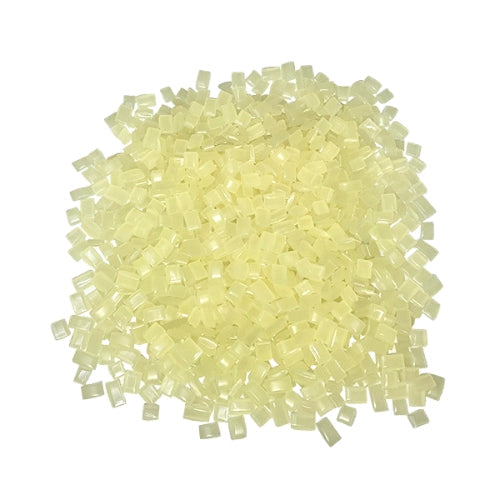February 5, 2025
Jump to:
- What Are Bio-Based Adhesives?
- What Are They Made of?
- Biodegradable vs. Bio-Based
- Benefits of Bio-Based Glues
- Bio-Based Hot Melts
- Product Recommendations
With a growing emphasis on being more environmentally conscious, many companies are looking for more sustainable solutions when it comes to their adhesive use. One such option companies are looking into is bio-based glues.
What are Bio-Based Adhesives?
Instead of petroleum, bio-based adhesives are adhesives made largely or fully from biomass or natural materials such as starches, plant oils, or natural resins. These natural adhesives are meant to be a more sustainable alternative to traditional petroleum-based adhesives as they can reduce the negative impact on the environment.
Historically, bio-based adhesive glues were limited in their scope and sometimes thought to be less efficient than traditional adhesives. Now, advances in technology have helped to expand the applications for these products as well as their effectiveness.
What Are Bio-Based Adhesives Made of?
An adhesive that is bio-based can be made from any number of natural and raw materials. Plant-based adhesives, for example, are quite common. Some potential ingredients in bio-based glues include:
- Starches
- Plant oils
- Natural resins
- Algae
- Proteins
- Cellulose
- Lignin
- Tannins
Because these components are natural ingredients, they can more easily break down. Depending on their exact chemical makeup, they may be considered biodegradable or compostable adhesives. In contrast, traditional adhesives may take several years to decompose and also leave behind harmful toxins.
Biodegradable Vs. Bio-Based Glues
While similar and sometimes used interchangeably, biodegradable and bio-based adhesives are not the same. There are some important and distinct differences.
- Bio-Based: Bio-based is used to describe the raw materials of a substance. Bio-based adhesives are made from renewable and natural materials, but that does not necessarily mean they are biodegradable. Some bio-based glues still contain other materials that will not break down naturally over time.
- Biodegradable: On the other hand, biodegradable is used to describe how the material breaks down. Adhesives that are classified as biodegradable will break down naturally over time into non-toxic components. An adhesive that is biodegradable may or may not be bio-based.
While bio-based adhesive glues are more sustainable than traditional options, ones that are also biodegradable have an added environmental benefit by reducing long-term waste.
Benefits of Bio-Based Glues
More and more companies are looking to bio-based adhesives as a more sustainable solution to their adhesive use. Some potential benefits of bio-based adhesives include:
- Decreased environmental impact
- Reduced carbon emissions
- Better biodegradability
- Lower toxicity
- Better compliance with government regulations
Bio-Based Hot Melt Adhesives
Initially, bio-based adhesives were waterborne solutions that were limited in their applications. Some people thought that natural glues from plants were ineffective and inefficient. Now thanks to advances in technology, bio-based glues have started to expand to include different types of adhesives that can be used in numerous industries.
The packaging industry, in particular, is benefiting from the development of new partially bio-based packaging glues. The first of its kind, the Tecbond 214B hot melt adhesive is made from 45% bio-based materials and is biodegradable. When exposed to UV light, oxygen, and heat, it will decompose naturally. This partially bio-based hot glue will eventually break down completely without leaving behind any toxic chemicals. Similarly, Tecbond 110B is partially bio-based and made primarily for automated, high-speed packaging applications.
Go Green
As companies look to be greener, bio-based adhesives are a promising solution for many. They can help to reduce our reliance on petrochemicals and minimize negative environmental impact.
If your business is looking for a more sustainable solution, we want to help. We are the master distributor of a collection of biodegradable hot melt adhesives from Power Adhesives. These products come in various forms to meet different applications. You can also sign up to become a distributor of these biodegradable adhesives if you are a business looking to provide your customers with these products.












